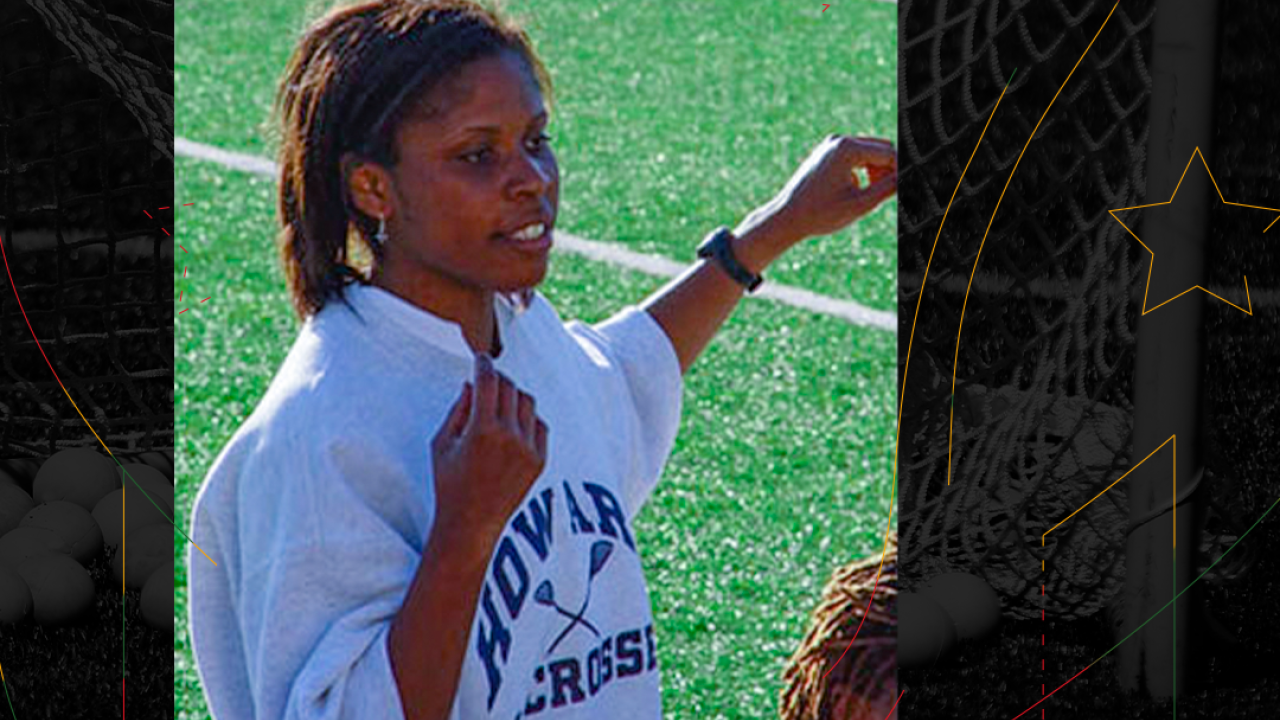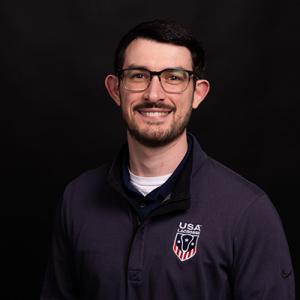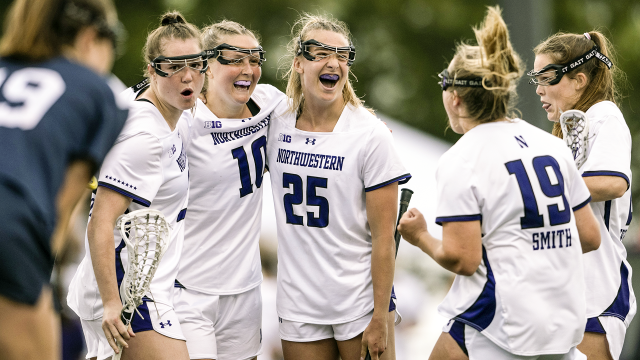
Former Howard Coach Melinda Wright Helped Elevate HBCU Lacrosse
There was an instant attraction when Melinda Wright first picked up a lacrosse stick in seventh grade. It was almost magnetic.
Growing up in New Haven, Conn., Wright soon established herself as a sought-after prospect. She dreamed of playing for Feffie Barnhill at William & Mary, but she spurned programs that recruited her heavily to walk on at Cornell, where the Africana Studies program was an incomparable draw. Cornell was one of the few universities in the early 1990s to have a reputable program.
“I never know how to explain this, but lacrosse is, has been and always will be a huge part of my life,” said Wright, whose lacrosse journey has now taken her to the executive board of Harlem Lacrosse. “Lacrosse is so freeing to me. I just feel free when I play. Lacrosse at Cornell initially was tough. I made it as a walk-on my freshman year. I loved the camaraderie, but I hated the cold.”
Wright felt as if she was torn between two worlds, though. She loved her teammates, but the commitment to lacrosse prevented her from pursuing other passion plays, like stepping into a larger leadership role in Cornell’s Black community. So, midway through her sophomore season, Wright left the team. She soon rose to president of Cornell’s Black Student Union and became involved in activism on campus.
Wright graduated from Cornell in 1994 and went to law school at Georgetown, earning a master’s degree in history and educational policy. It was in the nation’s capital where Wright fell back in love with lacrosse.
During her second year of law school, Wright accepted an assistant coaching position at Howard, the only Division I HBCU — historically black college or university — that offered lacrosse at the time. In May 2002, Wright replaced Laurie Polmilsak as Howard’s head coach.
“Coaching at Howard filled a void for me,” Wright said. “My experience at Howard was incredible. Probably one of the best jobs I’ve ever had. Lacrosse wasn’t popular at HBCUs, but the experience of coaching Black players, that was the most meaningful to me.”
Wright immersed herself in HBCU life while elevating Howard as a program. From 2001-05, Wright helped continue to shift the caliber of players Howard could attract. Whether or not her recruits were lacrosse players, Wright sought athletes who would thrive with a stick in their hands. Above all, she wanted smart athletes who could learn the sport quickly.
She then introduced spring break trips to Florida — something she deemed necessary for high-level Division I programs for both training and team building. Wright’s goal was to legitimize the HBCU lacrosse experience.
It helped to have plenty of on-campus draws built in. Homecoming was a recruitment tool, she said.
“Oh, the band life,” Wright recalled. “HBCUs have an incredible rhythm to them.”
Overall, it’s a unique experience unmatched by any other of Wright’s several stops as a professional educator, mentor and coach.
“The sense of community is just incredible,” she said. “There is an authenticity to just being able to show up as who you are as a Black person. Also, the diversity of Black people or People of Color within HBCUs is just incredible. It’s an opportunity to meet Black people from all across the country and learn about their own experiences.”
Learning and teaching are probably Wright’s two biggest passions outside of lacrosse. Wright participated in Teach for America right out of college and taught in New York City and now gets to combine her passions with Harlem Lacrosse.
Wright’s approach to education is about providing windows and mirrors.
“When I went to prep school, a predominantly white prestigious prep school in New Haven, I feel like it gave me windows,” she said. “There were things I just never considered for myself or my own life. Mirrors is seeing people who look like me have success and make it. When I taught in New York City, I thought maybe I could be a mirror for someone.”
Seeing more Black lacrosse players make it could encourage more young Black athletes to pick up the sport and mirror their successes.
“My dream, really, is to fill the stands with elementary age kids from diverse backgrounds to see the sport in action,” Wright said. “Once you see the game, you aren’t going to say no.”
Kenny DeJohn
Kenny DeJohn has been the Digital Content Editor at USA Lacrosse since 2019. First introduced to lacrosse in 2016 as a Newsday Sports reporter on Long Island (yes, ON Long Island), DeJohn specializes in women's game coverage. His search for New York quality pizza in Baltimore is ongoing.

Related Articles





